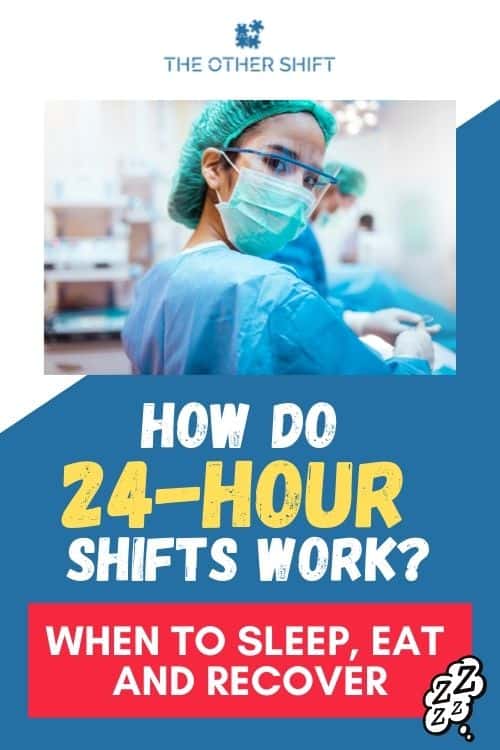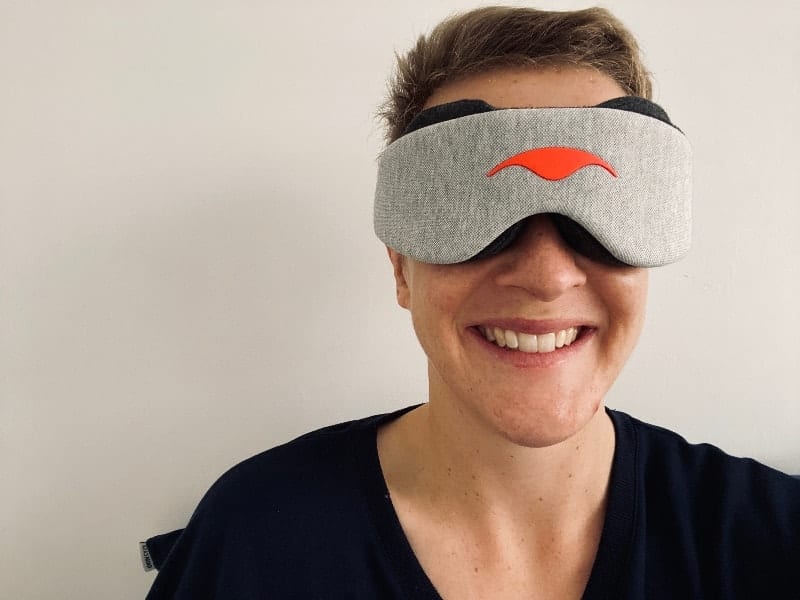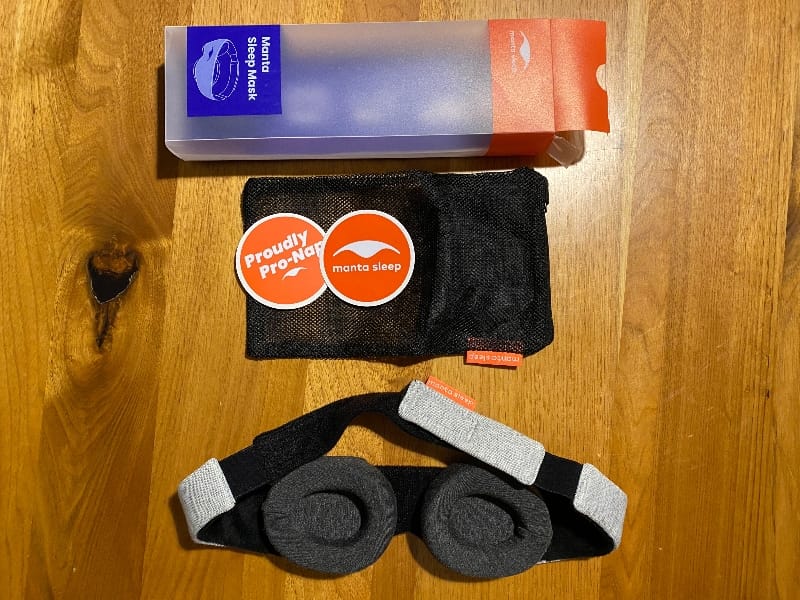Disclosure: This page may contain affiliate links, meaning we receive a commission if you decide to make a purchase through our links, but this is at no additional cost to you. Please read our disclosure and privacy statement for more info.
Without context, working a 24 shift can seem like an impossible task. However, you would be surprised at how common this work is. Certain industries wholeheartedly embrace a 24-hour work schedule; especially those who have no other choice but to operate on an around-the-clock basis. So if you find yourself working this schedule or have had it proposed, what’s involved and how do you keep yourself in good shape when doing it?
When working a 24-hour shift you’re obligated to your job for 24 hours. This is most commonly structured as 24 hours on and 48 hours off with this process being repeated every three days. For sustainability; staff must take frequent breaks, stay hydrated and find a consistent sleep routine.

If you are amongst those who work 24-hour shifts or are considering it – read below for a deep dive into what this work schedule is all about and how to stay healthy in the process.
Components of a 24 Hour Shift
A 24-hour shift is exactly as it sounds. It is a shift in which you are obligated to your job for all hours in the day and night. It seems like a lot, and that is because – it is! So, how do companies implement a successful 24-hour work schedule? The most common 24-hour work schedule is the 24-48 work schedule.
This type of schedule is only achievable if you have enough employees to create three separate “teams.” Each team spends an entire 24 hours on duty. By implementing this, you are giving each employee an entire forty-eight hours off duty. You work for a full day and then you recoup for two days.
The process is repeated every three days. By the schedule turning over in this time period, it means that no employee will be required to ever work an entire weekend, which is a huge plus. Nobody likes to work all weekend long! This also means that you will only be scheduled to work a maximum of three days throughout the week – totaling out to be fifty-six hours.
Related post: 13 Advantages of Shift Work for Employees

Are 24-Hour Shifts Illegal?
While 24-hour shifts may seem excessive, they are not illegal.
Chron, an expert in labor law states:
“No federal law broadly limits the numbers of hours an employee can work in a single day. However, there are numerous laws regarding overtime pay, on-call work situations, hours for teenage workers, and safety measurements to prevent excess fatigue”
source
Simply put: NO. There are no laws in place that prohibit an employer from requesting that an employee work a shift of 24-hours.
Keep in mind that if you are not in a workplace that is accustomed to working 24-hour shifts – meaning if it comes up “out of the blue” – you reserve the right to decline working those long hours. It cannot be forced upon you. However, if you do accept to work the 24-hour shift in an industry where it is not in writing – there are laws in place to protect you.
As always, be sure to double-check with your local and state regulations when it comes to fully understand the law and 24-hour shifts. There could be a slight difference based on the state. A quick Google search or call to your local municipalities could clear up any confusion that you may have.

Can You Sleep When Working 24-Hour Shifts?
The question on anyone’s mind who is considering a job that works on 24-hour shifts – can you sleep? For the most part, sleep comes on a “when you can, if you can” basis. Not all shifts are going to be overly taxing to where you are unable to get any sleep in. However, it is important to prepare yourself for those times in which you are slammed your entire shift.
Really, the question of can you sleep while on your shift can differ depending on the circumstances.
There are some instances in which employers are required to pay you while you sleep.
A great example of this would be that of Paramedics. Paramedics are required to man the station the entire time that they are on duty – unless of course, they are on a call for service. This means that the Paramedics are relinquishing their time to their employee, making themselves readily available to be called on when needed. In turn, the employers compensate them with pay for the entire time in which they are on the clock.
Sleep is your best friend in a 24-hour shift. Use the time you have available to get an adequate amount.
Here’s a post perfect for about now – How To Sleep Fast In 5 Minutes. 13 Tips To Get You There

Jobs That Require 24-Hour Shifts
While 24-hour shifts are taboo to most, there are industries in which it is very common to work them. In fact, some professions make it known before you start with them that you are expected to work this type of roster.
Working on a 24-hour shift provides an avenue for continuous, seamless care. Below is a list of occupations that typically work on this type of schedule.
EMS / Firefighters
Working side by side, firefighters and emergency medical technicians pull an entire 24-hour shift to save lives. They work on the traditional 24 hours on and 48 hours off schedule.
Caregivers
Those who work as caregivers for the elderly or disabled also generally use a 244-hour workday. This allows the caregiver to give constant care to the individual for an entire day. Depending on the company, caregivers can be required to work up to 72 hours (sleep included).
Doctors / Nurses
We see it all of the time on tv; Doctors and Nurses religiously pulling 24-hour shifts. This is mostly true for real-life operations as well.
Many Doctors and Nurses actually pull 24 (or more) hours, sleeping in on-call rooms when the time is allotted. Which, if you can imagine the chaos of a hospital – we can assume that the amount of time made for sleeping is not much.
- Related post for the nurses – Being a New Nurse is Hard. How to Stop Feeling Incompetent
- Here’s one for the doctors – The Experts Guide to Self Care for New Resident Doctors
Truck Drivers
Have you ever been driving down the interstate and passed an 18-wheeler tucked off on the side of the road, with the vehicle shut off? This is because the majority of truck drivers are required to work on a 24-hour work schedule. Driving when they can, and sleeping when they can. They frequently pull off on the side of the road or to a rest stop in order to get some shut-eye.
- If you need some help while driving – here are a few helpful tips.
Security Guards
Security guards are another group of individuals who often opt to work 24-hour shifts. Typically they work 16 hours (active), plus spending an additional eight hours on-call – equaling up to 24 hours.
Be advised that this is not a full comprehensive list of organizations that utilize 24-hour shift work. There are other organizations across the globe that use this method of scheduling.
- For the permanent night shift workers, this post is for you – The 10 Habits of Successful Permanent Night Shift Workers

Health Impacts of 24-Hour Shifts
Whether you are working 12 or 24 hours shifts, the main thing to take into account is the impact that it has on your health. If you are in a job that works off of a 24-hour on and 48-hour off schedule – the chances of you running into health issues can increase.
Some major issues that those who work this shift encounter include: sleep deprivation, anxiety/depression, diabetes, and the high risk of occupational injury.
Sleep Deprivation
It happens to the best of us! We get so caught up in what is going on in our everyday lives, work included, that we forget in order to survive we have to have adequate sleep. Pulling 24-hour straight working hours regularly can make this difficult, so we must get some shut-eye at every opportunity possible.
If you can’t sleep and still need to work, this post is for you.
Anxiety / Depression
Longer hours at work means longer hours for anxiety and depression to sink in. Anxiety and depression are different for everyone, however, working on the job for extended periods without adequate time off or sleep can serve as a catalyst.
Keeping reading – Night Shift and Depression. Are They Linked?
Diabetes
Long hours at work often means that healthy eating habits are easily kicked to the curb. You may find yourself swamped with work and unable to eat. This often results in unhealthy eating habits which could progress to diabetes.
Occupational Injuries
Injuries at work happen to the best of us, however, working on this shift can increase the possibilities. When you are overly exhausted your brain starts “lagging”, which might result in a decrease of concentration and timeliness, putting your body in a position of harm.
This list is just a small list of some of the potential health-related risks. If you are experiencing any of these, seek immediate medical attention.
Understanding when your body has reached its limit is important. I am fully aware that it can prove difficult to find the time to seek proper medical attention. When you are off, your time is generally spent catching up on sleep that you have missed. However, always remember that in order for us to take care of others, we must first take care of ourselves.

How to Remain Healthy Working 24-Hour Shifts
It does not take a rocket scientist to realize that working 24 hours straight can take a toll on you both mentally and physically. Below will be a compiled list of five tips to stay healthy while working a 24-hour shift.
Break Regularly
Taking regular breaks does not make you a bad employee. As you can imagine, working 24 hours straight will result in utilizing several little breaks throughout the day. Or at least it should.
It is important that you take breaks every now and then. Especially if you begin to feel overwhelmed or stressed out. Take a breather – walk away for a bit. Any time away – regardless of how small, can help you complete the night. Try taking 10 or 15-minute breaks when the time presents itself and never skip them.
In this video, I talk about why breaks are critical for Emergency Nursing staff, even if it’s just for a couple of minutes.
Take Sleep Seriously
I’m sure I don’t have to tell you but, sleep is one of the hardest things to come by when working 24-hour straight hours.
Be sure that you are getting an adequate amount of sleep before the start of your shift, as you don’t go into a shift with any certainty of when you will be able to get some shut-eye.
After your shift begins, finding sleep becomes a game of cat and mouse. Therefore, during any type of downtime, it is important to try and get some sleep in. Even if you do not feel tired at the time, try to nap! There’s no telling when a window may present itself once again.
Having power naps will save your butt and so too will using an eye mask that blocks out 100% of the light. That’s why Dan and I use the Manta Sleep Mask.


Stay Hydrated
Honestly, this will more than likely be on any list that you come across. That is because staying hydrated throughout your shift is extremely important.
Adding dehydration onto a 24-hour shift can be pretty volatile to your health. If your work allows for it – try carrying around a refillable water bottle with you. We use the BEAST Tumbler for this and it’s darn wonderful.
If you’re bored of water, here are some refreshing alternatives.
Stay Positive
On days where you feel like your shift is just never going to end – know that it will. Keeping a positive mindset is essential when placed on a 24-hour shift. Think about it, being negative on top of working 24-hours does not seem like the best of times. Train yourself to think positively, as a positive mindset will make your shift seem a little more bearable in the tougher times.
Surrounding yourself with positive people helps too!
Eat Nutritious Foods
A lot can happen in 24-hours. It is easy to get caught up in the work and forget to take care of yourself along the way. It is not uncommon for people to forget about eating. However, doing this can cause major fatigue and other health problems along the way.
Be sure that you pack enough food (healthy food if possible) that will last throughout your shift. If possible – try eating 3 substantial meals throughout your 24 hour period. Eating can be a great way to fuel your energy, which could prove beneficial to you successfully completing your shift.
If you’re not sure about food timing, the video below dives into more.
If you want some food ideas, these will get you started;
- 14 Foods You Should Absolutely Be Eating After A Night Shift
- Is The Warrior Diet the Ultimate Tool for Night Shift?
- Energy-Boosting Foods for Night Shift: What To Eat and When
In summary, working a 24-hour shift is not easy to do. It takes a lot out of an individual, both mentally and physically. However, with the right tools and mindset, you can make it through.
There is a lot of literal blood, sweat and tears that go into just one shift. So, if you are one that pulls 24-hour shifts regularly, all the respect in the world from this team! These types of shifts have a tendency for turning for the worst, but that doesn’t have to be your every shift.
Take charge of your shift – take control of your 24 hours!
If you’re struggling to stay awake for the whole 24-hour shift, this video is packed with suggestions to keep you awake.
Cheers,

Disclosure: This page may contain affiliate links, meaning we receive a commission if you decide to make a purchase through our links, but this is at no additional cost to you. Please read our disclosure and privacy statement for more info.
Disclosure: This page may contain affiliate links, meaning we receive a commission if you decide to make a purchase through our links, but this is at no additional cost to you. Please read our disclosure and privacy statement for more info.
Recent Posts
An examination of the night shift professions, that while sometimes underappreciated, are necessary for civilization, in its current form, to exist. A city can be thought of as a machine. Each...
Culminated from an exhaustive yet well-funded journey into the night, this article will prepare you for life outside of work while being a denizen of the dark. During days off, night shift...

